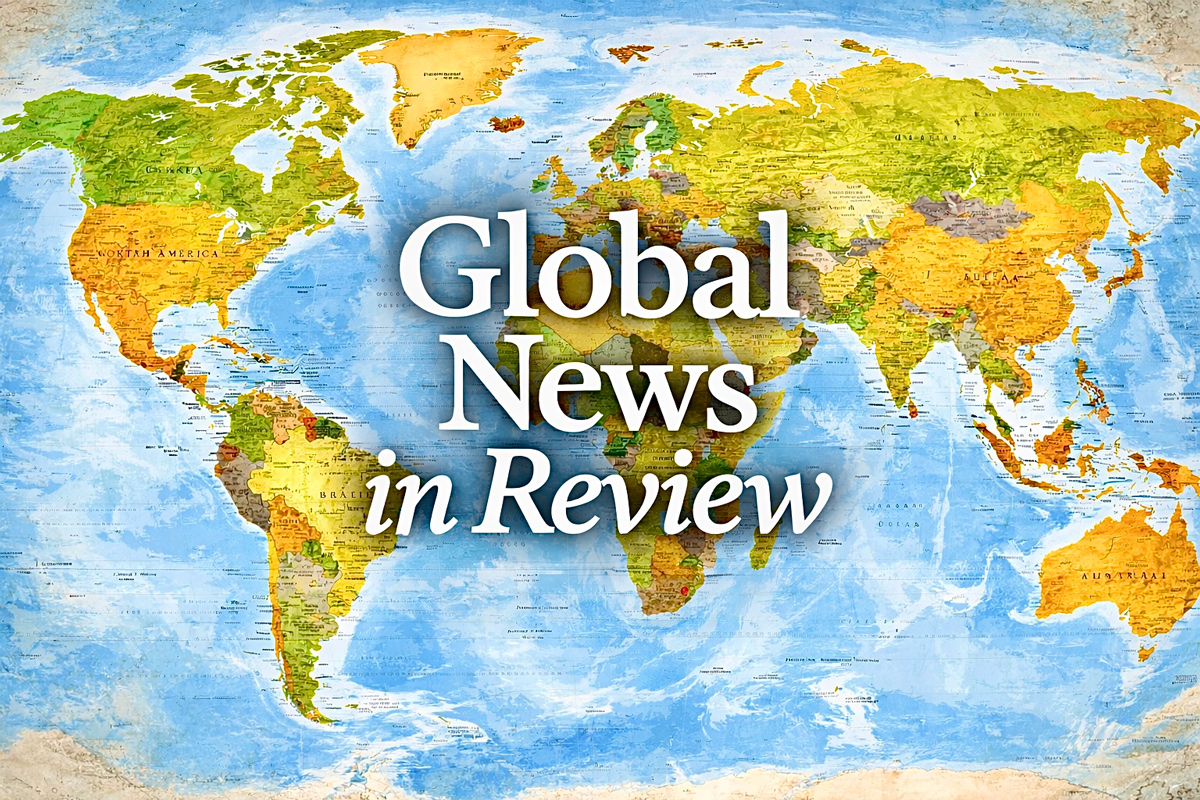Foreign Policy Brief #205 | Abran C

A projectile hit buildings on Friday as the Israeli Iron Dome air-defense system fired to intercept missiles over Tel Aviv. Credit… Leo Correa/Associated Press
Israel-Iran war and ceasefire deal
For over 12 days Israel and Iran exchange strikes after their long-time conflict hit a flashpoint following Israel’s surprise attack on Iran’s nuclear program and assassination of Iranian leadership. The attack kicked off a sequence of events that has left hundreds reported killed and put the United States at risk of being dragged further into the war. The head of the International Atomic Energy Agency (IAEA) recently stated that Iran has been enriching higher amounts of uranium and in breach of the non-proliferation treaty. While also confirming that the agency had not found “any proof” of an effort to develop a nuclear weapon by Iran.
The statements in the report have been used as a justification for the strikes on Iran’s nuclear facilities by Israeli and US officials. Iran has since announced that the country is planning to pull out of the non-proliferation treaty and suspend cooperation with the IAEA. Israel itself has never signed onto the treaty, and is widely believed to have at least 90 nuclear warheads and materials to create hundreds more. Following the Israeli strikes the United States carried out attacks against three Iranian nuclear sites, Natanz, Fordow, and Isfahan. Iran’s response to the US strikes soon after were a wave of missiles at Al Udeid Air Base in Qatar, the headquarters of the US Central Command and the largest US base in the Middle East. Following the bombings US President Donald Trump declared a ceasefire between Israel and Iran and pressured both countries into ending their attacks. For the ceasefire is in place but it is uncertain and unlikely that it will permanently cease hostilities.

Colombia confirms that it has been accepted into the New Development Bank, known as the “BRICS bank,” which it applied for in May in China. Credit: Juan Diego Cano / Presidency of Colombia.
Colombia joins the BRICS Development Bank
Last month Colombia was accepted as a new member of the New Development Bank, also known as the “BRICS bank”. The bank acts as the central development bank for the economic bloc led by Brazil, Russia, India, China, and South Africa. It is similar to the World Bank and the International Monetary Fund (IMF) and aims to mobilize resources for infrastructure and development projects in emerging and developing countries. Colombia had requested membership into the institution earlier this year, amid tensions with the United States over President Trump’s tariff war and Colombia’s acceptance into the Chinese Belt and Road Initiative.
The country’s entry into the bank does not, however, mean Colombia is now a member of the BRICS economic bloc. Rather, it means Colombia can access resources and financing for diverse projects. Its entrance into the BRICS financial sphere does however point to the bloc’s growing relevance and rival to the existing global financial institutions.
Members of the M23 rebel group are seem after the opening ceremony in Goma, North Kivu province, in the eastern Democratic Republic of Congo, April 7, 2025.
DR Congo and Rwanda sign peace agreement
The Democratic Republic of the Congo (DRC) and Rwanda have signed an agreement aimed at stopping the conflict in eastern DRC, according to a joint statement from the two countries and the United States Department of State. The deal, mediated by the US and Qatar, provides for the disengagement, disarmament and conditional integration of armed groups and the return of refugees and internally displaced people. The deal also gives the US government and American companies access to critical minerals in the region.The decades-long conflict escalated earlier this year when M23 rebels captured swathes of mineral-rich territory in eastern DRC. Amnesty International has criticized the deal, stating that the recent peace agreement signed between the DRC and Rwanda fails to address justice for the victims of serious crimes by not including any provisions aimed at holding their perpetrators to account.
Rwanda, which is widely believed to fund and support the M23 militants, denies the claims and insists its military presence in the region is a defensive measure against threats posed by armed groups. Several months ago, the United States launched a major mineral deal in the Democratic Republic of Congo and Washington’s deepening diplomatic and economic involvement in the region is aimed at securing US access to the region’s mineral wealth. Thousands of people have been killed in Eastern DRC and hundreds of thousands more have been displaced after the conflict intensified earlier this year.

Photograph: EPA Jun 16th 2025|NUUK https://www.economist.com/europe/2025/06/16/emmanuel-macron-flies-in-to-show-his-support-for-greenland
Macron visits Greenland
While on his way to the G7 summit in Canada last month, French President Emmanuel Macron stopped in Greenland, where he conveyed European solidarity and support for the Danish autonomous territory targeted by US President Donald Trump. Macron warned that Greenland is “not to be sold” nor “to be taken”. The French president, who voices his opposition to Trump’s ideas more often than other European leaders, has positioned himself as an integral voice in Europe amid Trump’s threats to annex territory and pull support from Ukraine as it continues to fight against Russia’s invasion.
Polls indicate that the vast majority of Greenland’s 57,000 inhabitants want to become independent from Denmark, but do not wish to become part of the United States. Unlike Denmark, Greenland is not part of the European Union but is on the list of Overseas Territories associated with the bloc.


